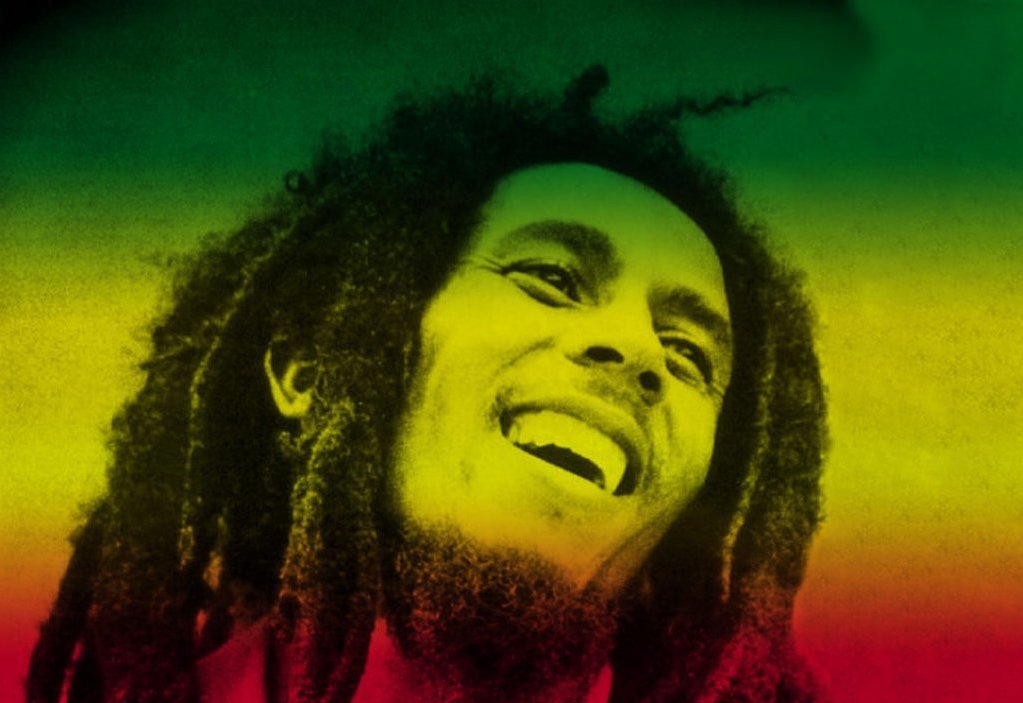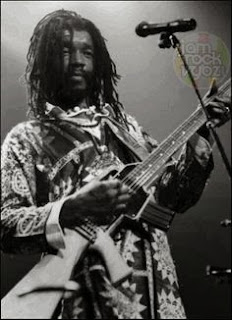EQUAL RIGHTS AND JUSTICE: REMEMBERING PETER TOSH
Winston Hubert McIntosh, popularly known as Peter Tosh was one of the original members of the group, the “Wailing Wailers”, along with the late Bob Marley, and Bunny Wailer. When Peter was fifteen, his aunt died and he went to live in Trench Town in Kingston, Jamaica. He acquired the love for guitar after watching a man playing one song for half a day, memorizing everything the man’s fingers were doing. He then picked up the guitar and played the song back to the man. The man then asked Peter who had taught him to play; Peter told him that he had.
During the early 1960s Tosh, Bob Marley and Bunny Wailer went to vocal teacher Joe Higgs, who was giving out free vocal lessons to young people, in hopes of forming a new band. He then changed his name to become Peter Tosh and the trio started singing together in 1962. Higgs taught the trio to harmonize and while developing their music, they would often play on the street corners of Trench Town.
In 1964 Tosh assisted in organizing the band the “Wailing Wailers”, with Junior Braithwaite, a falsetto singer, and backup singers Beverley Kelso and Cherry Smith. Initially, Tosh was the only one in the group who could play musical instruments. According to Bunny Wailer, Tosh was critical to the band because he was a self-taught guitarist and keyboardist, and thus became an inspiration for the other band members to learn to play. Braithwaite, Kelso and Smith left the band in late 1965.
"Simmer Down” and “Rude Boy”, were two of the group’s earliest hits. In 1969 the Wailers released the monster hits, “Small Axe”, “Soul Rebel” and “Duppy Conqueror” with producer Lee “Scratch” Perry. It was during this era that they decided to accept the Rastafarian faith, and it became the core of their music.
The collaboration had given birth to reggae music and later, bassist Aston "Family Man" Barrett and his brother, drummer Carlton Barrett would join the group in 1970. The band signed a recording contract with Chris Blackwell and Island Records company and released their debut album, “Catch aFire”, in 1973, following it with “Burnin” the same year. The Wailers had moved from many producers after 1970 and there were instances where producers would record rehearsal sessions that Tosh did and release them in England under the name "Peter Touch".
In 1973, Tosh was driving home with his girlfriend Yvonne when his car was hit by another car driving on the wrong side of the road. The accident killed Yvonne and severely fractured Tosh's skull. He survived, but became more difficult to deal with. After Island Records’ president Chris Blackwell refused to issue his solo album in 1974, Tosh and Bunny Wailer left the Wailers, citing the unfair treatment they received from Blackwell, to whom Tosh often referred with a derogatory play on Blackwell's surname, 'Whiteworst'. Tosh had written many of the Wailers' hit songs such as "Get Up, Stand Up", "400 Years", and "NoSympathy".
Bob and Bunny both launched their separate careers, while Peter formed his own group. Tosh began recording and released his solo debut album, “Legalize It”, in 1976 with CBS Records company. The title track soon became popular among endorsers of marijuana legalization, reggae music lovers and Rastafarians all over the world, and was a favourite at Tosh's concerts. His second album “Equal Rights” followed in 1977.
Tosh’s backing band, “Word, Sound and Power”, accompanied him on tour for the next few years. In 1978 the Rolling Stones record label Rolling Stones Records contracted with Tosh, on which the album “Bush Doctor” was released, introducing Tosh to a larger audience. The album featured Rolling Stones front men Mick Jagger and Keith Richards, and the lead single – a cover version of The Temptations song "Don't Look Back" – was performed as a duet with Jagger. It made Tosh one of the best-known reggae artists.
During Bob Marley's free “One Love Peace Concert” of 1978, Tosh lit a marijuana spliff and voiced his views about the legalization of marijuana, tongue lashing Michael Manley and Edward Seaga for their failure to enact such legislation. Several months later he was apprehended by police as he left Skateland dance hall in Kingston and was beaten severely while in police custody.
Tosh released the “Mystic Man” album in 1979, and “Wanted Dread and Alive” album was released in 1981 on the Rolling Stones Records label. He also appeared in the Rolling Stones' video “Waiting on a Friend”. In 1983, at the Los Angeles stop on Tosh's “Mama Africa” tour, a local musician named Bruno Coon went to the hotel at which Tosh was staying, claiming to have a gift for him. The gift was a custom-built guitar in the shape of an M16 rifle. Tosh accepted the gift personally. The guitar was subsequently lost by the airlines when the tour went to Europe but was recovered when Tosh's public relations agent placed an article about its loss in Der Spiegel. Tosh went on to perform on stage with the guitar.
In 1984, after the release of 1983's album “Mama Africa”, Tosh went into self-imposed exile, seeking the spiritual advice of traditional medicine men in Africa, and trying to free himself from recording agreements that distributed his records in South Africa. Tosh had been at odds for several years with his label, EMI, over a perceived lack of promotion for his music.
Tosh also championed the fight against apartheid in South Africa by appearing at Anti-Apartheid concerts and by conveying his opinion in various songs like "Apartheid", "EqualRights", "Fight On", and "Not Gonna Give It Up". He was awarded a Grammy Award for Best Reggae Performance in 1987 for his album “No Nuclear War”.
Peter's anthology of songs also included hits such as, “Buckingham Palace”, “Coming In Hot”, “Mawga Dawg”, and “I’mThe Toughest”, and numerous others. This superstar took the world by storm spreading the message of equal rights and justice.
Over the years Tosh had developed an interest in unicycles; he became a unicycle rider, being able to ride forwards and backwards and hop. He often amused his audiences by riding onto the stage on his unicycle for his shows. He was taught by Kelly Carrigan and they rode side by side for years.
Fate struck on Friday, September 11, 1997 when Peter Tosh, along with friends Winston “Doc” Brown, international radio disc-jockey, Free-I (formerly known as Jeff Dixon) were attacked and gunned down in cold blood at Tosh’s residence in Barbican, St. Andrew, Jamaica. Peter and Doc died that Friday, while Free-I battling for life, died three days later.








